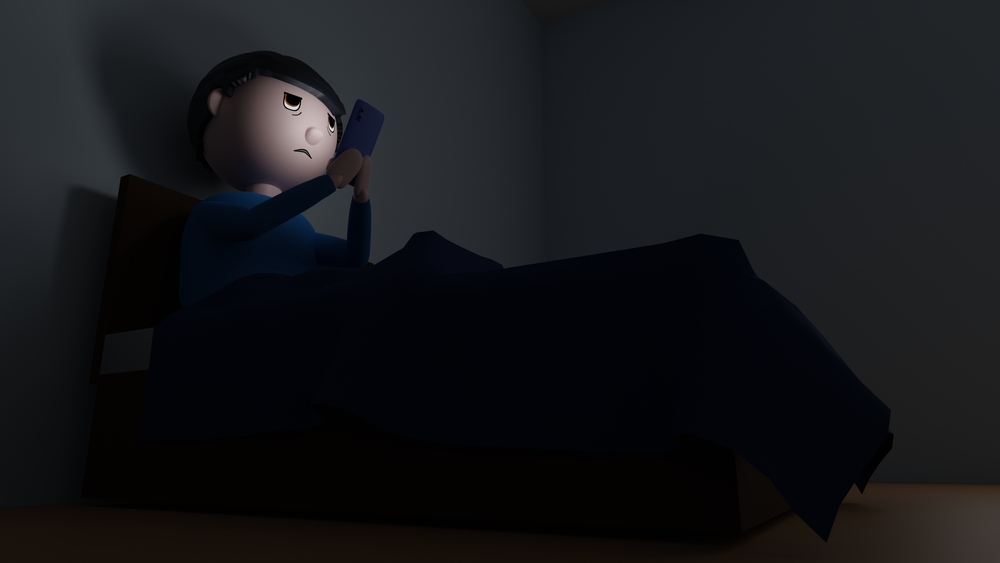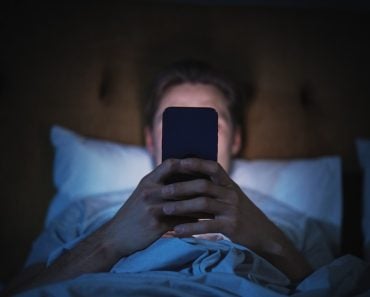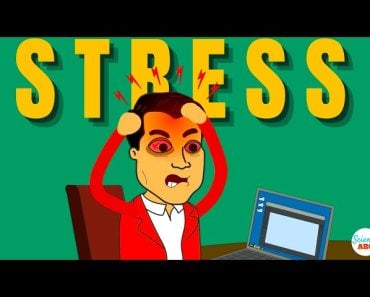We all skimp on our sleep. This phenomenon, which has come to be called bedtime revenge procrastination, is when we sacrifice sleep for a few more hours of leisure time. However, with busy schedules, this lack of sleep may be negatively affecting our health.
Have you ever been very tired and sleepy, but instead of laying down, you find yourself spending those hours on unproductive activities late into the night? This is known as bedtime revenge procrastination.
There is a very good reason why this happens. In a fast-paced world where we have little freedom over our schedules, we crave and cherish personal time. The only time that’s available for many of us is at night. We skimp on sleep to get a few hours of uninhibited freedom.
What’s driving this behavior?
Recommended Video for you:
What Is Bedtime Revenge Procrastination?
Bedtime revenge procrastination is when we intentionally delay sleep as a means of reclaiming our personal time.
We’re all trying to take back control of our schedules, and there’s a good reason for that. We yearn for autonomy in our lives, wanting to call the shots on how we spend our time.
Our generation faces unique challenges that fuel this desire. Many of us are caught up in the never-ending cycle of work, trying to balance being parents while holding down full-time jobs, or even juggling the pressures of college inc combination with a work schedule. It’s a lot to handle, and it creates that feeling of being stressed, which always seem to linger in the background.
In response, we seek out moments of freedom, even if it means sacrificing our sleep.
There are several psychological factors that contribute to bedtime revenge procrastination. Some of them are stress, anxiety, and wanting to engage in escapism. As stress levels increase, we seek temporary distractions. One study indicated a relationship between stress and engaging in procrastination behavior, including bedtime revenge procrastination. This means that as stress levels increase, so does the tendency to engage in bedtime procrastination.
The consequences of bedtime revenge procrastination are far-reaching. Because we are consistently sacrificing sleep, it disrupts our sleep patterns, the quality of sleep we get, and can have several negative effects on our well-being. Research reveals that inadequate sleep and low-quality sleep can lead to generalized anxiety, depression, low immunity, mood disturbances like anger outbursts, and overall low mental health hygiene.
Also Read: Why Do We Sometimes Feel Tired All Day, But Wired At Night?
What Does Bedtime Revenge Procrastination Look Like?

We’re all hooked onto our smartphones, tablets, laptops, TVs and other electronic device. These have greatly aided our ability to pursue bedtime revenge procrastination.
The constant connectivity and availability of digital entertainment easily traps people in a loop of late-night scrolling or binge-watching. Research has found that excessive screen time before bed can disrupt one’s sleeping patterns. It can also lead to delayed sleep onset and can negatively impact your quality of sleep.
This is why setting boundaries with technology and ensuring a device-free zone in the bedroom is known to address chronic sleep issues.
Also Read: Why Should You Never Use Your Phone Before Going To Sleep
Bedtime Revenge Procrastination, Productivity, And The Importance Of Prioritizing Sleep

Beyond immunity and mental health, sleep deprivation also impacts your productivity. Don’t believe those motivational blogs that talk about sacrificing sleep to increase productivity. In this matter, hustle culture is wrong.
Inadequate sleep can impair decision-making, problem-solving, and attention, claims that are backed up by research. Prioritizing sleep can enhance productivity and improve your cognitive abilities.
Prioritizing sleep is crucial for our overall well-being. A good night of sleep allows the body to recharge, repair, and optimize our physiological processes. It can increase our concentration and memory, boost our immunity, and also lead to emotional well-being.
A study conducted in 2014 revealed a moderate correlation between general procrastination and engaging in revenge bedtime procrastination. Traits commonly associated with procrastination, such as perfectionism, impulsivity, and low levels of conscientiousness, may be observed in individuals who exhibit this behavior.
Let’s consider the example of Jane, a working professional who often used to fall victim to bedtime revenge procrastination. She would stay up late watching TV shows, believing it was her only time for leisure. However, after recognizing the toll it took on her well-being, she committed to making a change. Jane established a consistent sleep schedule, implemented a relaxing bedtime routine, and consciously reduced screen time before bed. As a result, she experienced improved sleep quality, increased daytime energy, and enhanced overall productivity.
A recent study found that the above scenario had some credence.
The researchers delved into the phenomenon of bedtime procrastination and its impact on sleep quality. Their goal was to uncover effective strategies to tackle this behavior, with a specific focus on the role of mindfulness. The study involved 220 participants aged 17 to 30, who completed various questionnaires pertaining to mindfulness, boredom, bedtime procrastination, and sleep quality.
The outcomes of the study lent support to the researchers’ initial hypothesis, revealing an interesting pattern known as a serial mediation model.
Essentially, the link between mindfulness and improved sleep quality was found to be influenced by two key factors: decreased levels of boredom and reduced instances of bedtime procrastination. These findings underscore the significance of practicing mindfulness as a means of combating bedtime procrastination and its adverse effects on sleep. By adopting mindfulness techniques and actively working to reduce bedtime procrastination, individuals may find themselves experiencing better sleep and overall well-being.
How To Improve Sleep Quality?

To escape the clutches of bedtime revenge procrastination, it is crucial to create a sleep-friendly environment. To do this, ensure that you keep all technological devices away from your bed.
Create a routine to not check your phone starting at least an hour before you plan to sleep.
Try to set a regular bedtime and wake-up time, even on weekends. This helps regulate your body’s internal clock and promote better sleep quality.
Lastly, prioritize relaxation techniques, such as meditation or deep breathing exercises, in order to reduce stress and promote a sense of calm before bedtime.
Bedtime revenge procrastination may provide fleeting moments of personal time, but the long-term consequences on sleep and overall well-being are significant. By understanding the impact of chronic sleep deprivation, setting boundaries with technology, and implementing relaxation techniques to create a sleep-friendly environment, we can escape the trap of bedtime revenge procrastination. It is important to prioritize the power of rest and it is essential not to sacrifice sleep in exchange for personal time or autonomy.
References (click to expand)
- Exelmans, L., & Van den Bulck, J. (2017, August 15). Binge Viewing, Sleep, and the Role of Pre-Sleep Arousal. Journal of Clinical Sleep Medicine. American Academy of Sleep Medicine (AASM).
- M Hafner. (2017) Why Sleep Matters—The Economic Costs of Insufficient ....
- Bernecker, K., & Job, V. (2019, March 10). Too exhausted to go to bed: Implicit theories about willpower and stress predict bedtime procrastination. British Journal of Psychology. Wiley.
- Scott, A. J., Webb, T. L., & Rowse, G. (2017, September). Does improving sleep lead to better mental health? A protocol for a meta-analytic review of randomised controlled trials. BMJ Open. BMJ.
- Saghir, Z., Syeda, J. N., Muhammad, A. S., & Balla Abdalla, T. H. (2018, July 2). The Amygdala, Sleep Debt, Sleep Deprivation, and the Emotion of Anger: A Possible Connection?. Cureus. Cureus, Inc.
- Shanahan, L., Copeland, W. E., Angold, A., Bondy, C. L., & Costello, E. J. (2014, May). Sleep Problems Predict and Are Predicted by Generalized Anxiety/Depression and Oppositional Defiant Disorder. Journal of the American Academy of Child & Adolescent Psychiatry. Elsevier BV.
- Bryant, P. A., Trinder, J., & Curtis, N. (2004, June). Sick and tired: does sleep have a vital role in the immune system?. Nature Reviews Immunology. Springer Science and Business Media LLC.
- Kroese, F. M., De Ridder, D. T. D., Evers, C., & Adriaanse, M. A. (2014, June 19). Bedtime procrastination: introducing a new area of procrastination. Frontiers in Psychology. Frontiers Media SA.
- Teoh, A. N., & Wong, J. W. K. (2022, January 31). Mindfulness is Associated with Better Sleep Quality in Young Adults by Reducing Boredom and Bedtime Procrastination. Behavioral Sleep Medicine. Informa UK Limited.












